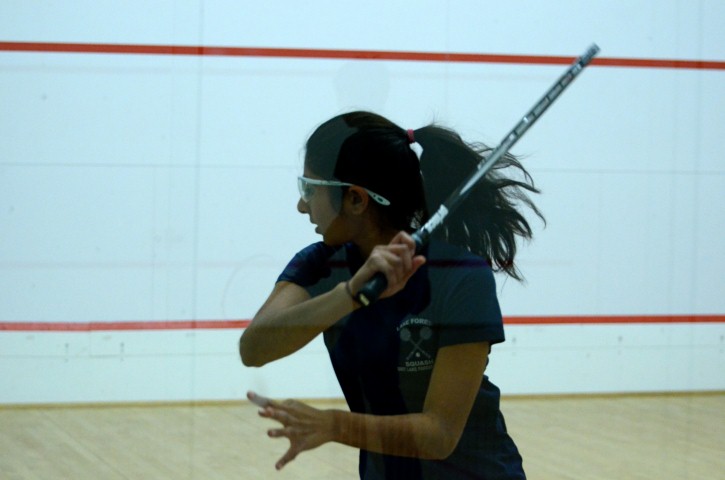When most people define squash, they think of crushing an object or squishing a bug. The last thing they would think of is the competitive sport. However, for one LZHS student, that definition is first on her mind.
Zainab Molani, junior, is currently ranked 21 in the nation for squash and firstin the state for 17 and under girls, according to the U.S. Squash website. Molani has been playing squash, an indoor racket sport played in a four-walled court, with her dad since she was about nine or ten, but has only been playing competitively for two years. Even though she has only been competing for two years, Molani and her coach, Franz Schwerer, have goals they are confident Molani can achieve this year.
“The big goal for [Zainab] is top 15 [nationally], and she’s just around the corner. She’s doing really well. She’s the best player in the Midwest, and she’s one of the top players in the country. The goal is to get her on a top team in college and she performs at the top level so she has a chance to get on an A Division team. She will play in the U.S. Open in December, which is the biggest international junior tournament in the nation. She will compete with the best. In the country, she is already one of the best.”
For the junior level that Molani competes at, there are four levels of tournaments, which are known as rankings. The rankings are bronze, silver, gold, and JCT (junior championship tour). JCT is the highest rank of tournaments.
“Gold and JCT [tournaments] are usually held on the East and West Coasts, so if I want to play a tournament to improve my ranking, I usually have to travel to the East Coast,” Molani said. “I’ll try to go to at least five or six tournaments in the next couple of months. Tournament season is really from the start of fall to early spring.”
In order to succeed in these tournaments, Schwerer says a player needs many skills.
“What is most important in squash is quickness. You also have to be creative; it’s like chess, and it’s a smart game. You need a lot of technical skills, you need to be smart, and you need to be fit,” Schwerer said.
According to Schwerer, there are also strategies in squash that will improve a player’s game. One of those strategies is to control the middle of the court.
“[Squash] is a game with two people in a small room fighting for a spot in the middle. The middle of the court is the peak position. If you have the center position, you control the game. You’re trying to move your opponent from corner to corner and then you return back to the center. This will give your opponent as much run as possible to tire them out and make them make mistakes. It’s really tough,” Schwerer said. “Everyone wants to be in control of the key position. If you are tough enough and have a good technique you will get the key position. If not, it’s hard to control the game.”
Molani is able to control the game and succeed at these tournaments, which will improve her rankings. Not only will playing in JCT tournaments improve her rankings, but Molani said it can also help her get into college. According to Molani, many colleges look to recruit squash players for their school’s team.
“A lot of really good colleges, like Ivy League schools, have squash teams. It’s really good on a college resume to put down that I play [squash]. I don’t know if they would offer scholarship money for playing, but it would help [me] get accepted if the coach recruited [me],” Molani said.
Molani is looking forward to playing squash after high school and hopes to continue playing even beyond the college level.
“I’m pretty sure I’ll keep playing for the rest of my life. I love squash,” Molani said. “It’s totally a life sport.”

